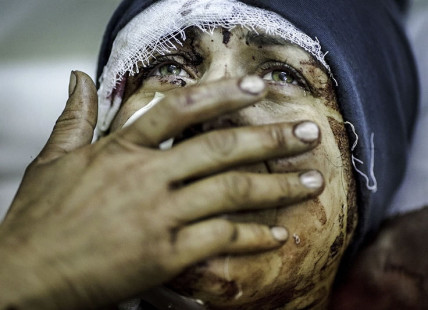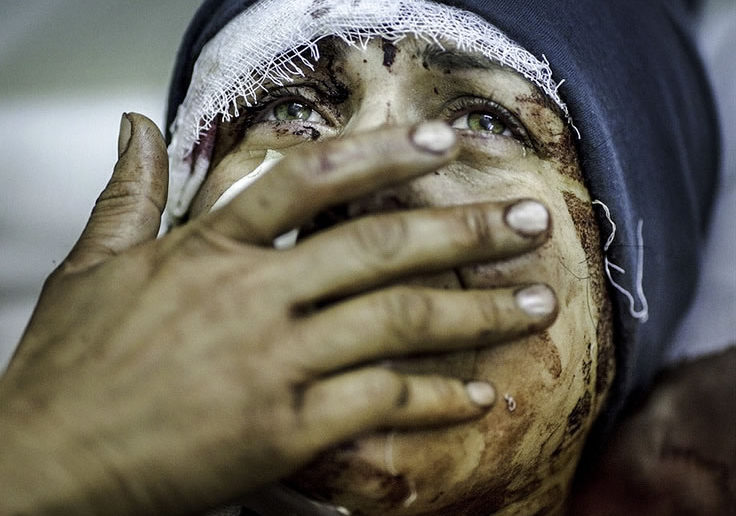
A mother mourns the loss of her family in Syria. Photograph courtesy of Syria Freedom
Seven million Syrians have been displaced and more than 100,000 killed in the ongoing civil war, nearly one third of the country’s population, with the international community still divided on how to reduce the bloodshed.
The US has stalled on their plans for military airstrikes on military installations in response to the use of chemical weapons in Ghouta which reportedly killed 1,300 people, with president Obama looking to a skeptical Congress to support the intervention. The Assad regime has used this change in stance to mock the US, calling it a “historic American retreat” via the al-Thawra newspaper.
Obama’s change in position was likely due to the British parliament voting against any British military involvement in any intervention, leaving the US and especially president Obama, exposed on an international scale. President Hollande of France has said that France would support military intervention, but they will not act alone, leaving the ultimate responsibility of the action with the United States.
A recent BBC poll has found that 72% of the public believe that MPs were right to reject UK military action in Syria, with there little will for military intervention after the failures of Iraq both in intelligence before the war, and lack of a positive outcome after British troops left the country.
Whilst the Syrian public may have been calling for international intervention 18 months or even two years ago to prevent the country slipping into the bloody civil war in which it now finds itself, the case for military action now is not so clear. It is probable that the chemical attack at Ghouta was actioned by Assad’s forces, but whether the order came from the top is not clear from current intelligence. Moreover, whilst whoever perpetrated that war crime should be prosecuted, it is unclear whether a strike on Assad’s military would do more than raise the death toll of the war.
The Syrian opposition have become radicalised over the last 30 months, as the less radical have become marginalised as they were starved of support as the West faltered and failed to provide support, whilst Saudi Arabia and Qatar supplied more hard-line groups. The rebels were certainly not the terrorists as claimed by Assad in the first months of the conflict, but now there are powerful extremist groups fighting against the Syrian military including from al-Qaeda and Jabhat al-Nusra. There is little security that weakening Assad would only support the more inclusive FSA, and not extremist groups, and seeing the continued bloodshed in Iraq after the US and UK invaded under the guise of bringing peace should give the parties involved reason for pause.
Russia is a staunch supporter of the Assad regime, and as such there can be no resolution through the UN Security Council, but it is Russia that is providing the weapons and finance that are keeping the Assad regime fighting. Bringing Russia to the negotiating table may bring a better chance of peace and stability than bombing targets within Syria. The West and many Syrians may want to see Assad toppled from power, but the power vacuum that could be created with military intervention could lead Syria along the path to become not just a war-ravaged country but also a failed state with extremist groups continuing to vie for control.
The world needs to plan for the future which offers the least bloodshed of further Syrian civilians, and that means bringing all parties to the negotiating table.




